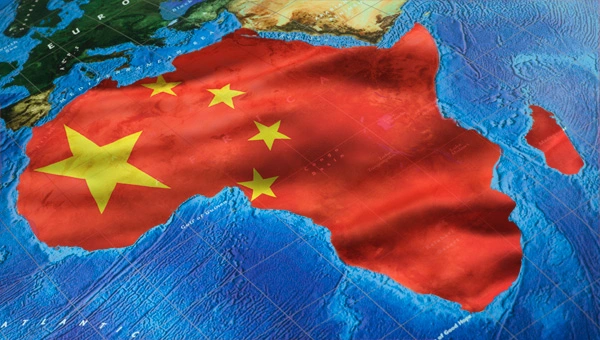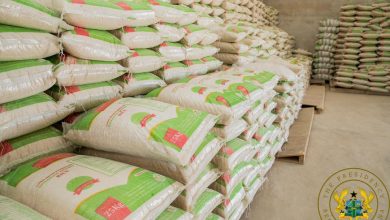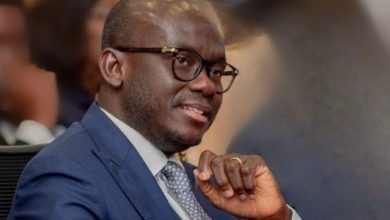CHINA: Modernized Colonialist of Africa
You are probably wondering why I chose this title or you might completely not agree with it.
One could argue that Africa has long since freed itself from colonial shackles like subservience, slavery, captivity, subjugation, et al.
Journey with me in this write-up as I prove to you why this presumption of Africa’s Independence is false.
China, Africa’s largest and most powerful friend, has been investing billions of dollars in the region, financing one megaproject after another. Have you asked why? Or ever given it a second thought?
China eclipsed the US to become Africa’s top commercial partner almost ten years ago. Its two-way trade surpassed $150 billion last year, which is four times more than US-Africa trade. It is also the main country of origin for African manufacturing imports, providing 16% of Africa’s total in 2018.
In 16 African nations, China has established 25 economic and trade cooperation zones. According to the China-Africa Economic and Trade Relationship Annual Report 2021, the zones, established with China’s Ministry of Commerce, attracted 623 enterprises with a combined investment of $7.35 billion at the end of 2020.
China’s zones for economic and trade cooperation with other countries support local industrialization in a number of industries, including agriculture, manufacturing, trade, and logistics, as well as natural resources.
There are numerous sectors of the African economy where Chinese businesses are active. Nearly a third, work in manufacturing, a quarter provide services, and around a fifth are engaged in trade and building/real estate.
Let’s carry on!
Take the standard railway in Kenya, built and financed by China. Completed a couple of years ago to connect Nairobi, the capital, with the port city of Mombasa, the railway was grossly overpriced at $3.2bn. Instead of refurbishing the existing line, a far cheaper option, Kenya paid China three times more than the industry standard.
Struggling infrastructure projects like this have intensified a rising debt problem for large and small African economies alike.
Considering that, here are a few million-dollar projects in Africa which are standing today and others in the pipeline thanks to Chinese money.
–Railway Projects

At least five African countries have had their railway systems funded by China: Kenya, Ethiopia, Angola, Djibouti and Nigeria. In Ethiopia, China has funded two railways projects; Addis Ababa Light Rail Transit and Ethiopia-Djibouti Railway.
Kenya’s largest infrastructure project since independence, Mombasa-Nairobi Standard Gauge Railway, was funded by China at an estimated cost of R57.2 billion.
Lobito-Luau Railway in Angola and Abuja-Kaduna Railway in Nigeria were also funded by China.

The headquarters of the African Union in Addis Ababa, Ethiopia, was built with $200 million of Chinese state funds.

In March 2018, West African regional bloc ECOWAS signed a deal with China to build their headquarters at Abuja at a cost of $31.6million.
–Angola’s Caculo Cabaca Hydropower Plant

In 2017, Angola signed a deal with China for the construction of the Caculo Cabaca Hydropower project in Dondo, Angola.
The project is worth R67.7 billion and is set to produce 2,172 megawatts of electricity. The project will take about seven years to complete.
A similar project is ongoing at the Kaleta hydroelectric facility in Guinea, worth R3.8 billion, with China funding 75 per cent of the project.

Before President Robert Mugabe was ousted, China presented the former head of state with a million-dollar gift –a new parliament.

That is not to say that China’s aid to Africa occurs out of benevolence. China’s historical incentives for engaging with Africa cannot be ignored. After a period of isolation due to the Korean War, China sought economic and political connections with Africa.
FYI – If you’re not aware of what Ghana is faced with currently.
The International Monetary Fund (IMF) has provided information regarding how Ghana’s four collateralized loans from China have put the government at risk of losing future energy sales as well as a portion of the earnings from its mineral resources.
Since the year 2000, Ghana has relied on Chinese loans as a consistent source of funding for large-scale projects. Accra has accumulated close to $5 billion from at least 41 Chinese loans over the course of two decades.
With a current external debt portfolio surpassing $30 billion, Ghana is presently debt-trapped and enduring its greatest economic crisis in a generation as a result of several years of almost unrestrained borrowing.
As a result of this loan deal, China will have the authority to take Ghana’s oil, cocoa, bauxite, or even electricity sales earnings to pay off the debt should Ghana fail to honor its debt obligations.
But in this interesting and saddening turn of events, our President, Nana Addo Dankwa Akufo-Addo says he’s not really perturbed by China’s involvement in our Economy (our Ghanaian Economy ooo!).
According to him, the Chinese involvement in the Ghanaian economy cannot be considered a matter of concern.
Sino-imperialism & Neo-Colonialism
Because Chinese loans are easily available, a problem familiar to the African continent has re-emerged: a heavy debt burden.
Africa is on the cusp of a new period in its history, its renaissance.

Liberated from centuries of colonialism and neo-imperialism, Africa still has the chance to develop into a hub of economic power to bring wealth to the expanding population of the continent. However, Africa now regrettably faces a new threat: Sino-imperialism, the potential of being ruled by China primarily due to Chinese economic loans and investment.
Guy Lindsay Scott, who served as acting President of Zambia from 2014-15, told The Guardian in 2007 that, “the Chinese are the worst of all races—the whites were horrible, the indians were worse. However, as China’s power increases and it looks for more resources, the Sino-imperialism is getting worse.”
Are we safe as Africans, having to run to either China or the West for assistance even though some countries like Ghana yearn to achieve financial independency?
My friend, these reasons and more are why I’m sad to say that our beloved continent is still not FREE.



